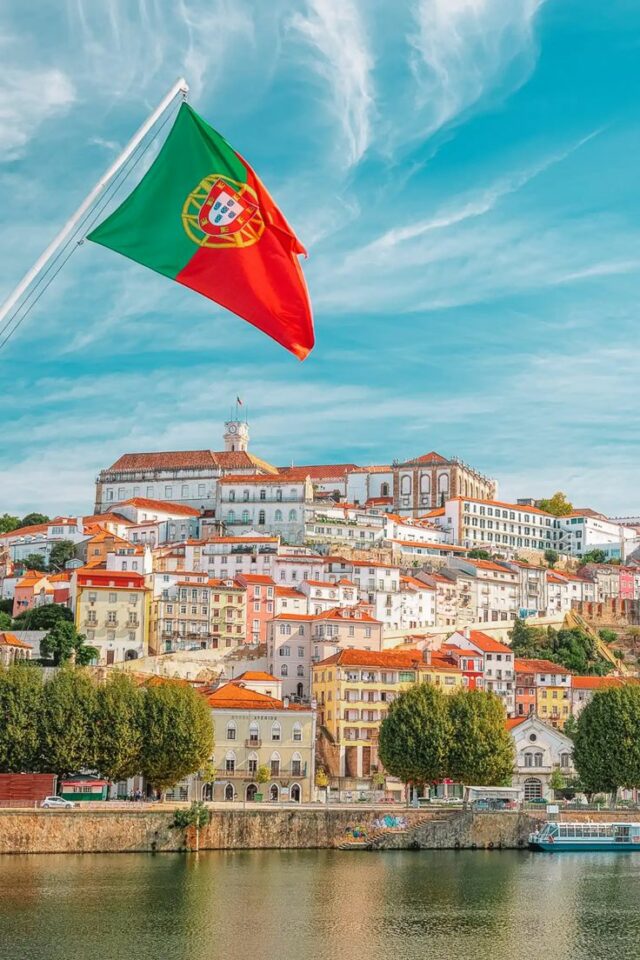Portugal is no longer only about city apartments and coastal villas. A new chapter is unfolding inland: agritourism, eco-resorts and nature-based hospitality that blend landscape, architecture and long-term value. For expatriates and global investors, this is where purpose, lifestyle and performance can meet.
From the rice fields near Comporta to the rolling plains of the Alentejo and the green hinterland of the Algarve, agritourism and eco-resorts are drawing a different kind of guest: slower, more conscious, willing to pay for authenticity. At the same time, they are attracting capital that wants resilient, asset-backed exposure to real estate in Portugal. Vasco Invest sits precisely at this intersection — between nature, hospitality and structured investment.
1) Why agritourism and eco-resorts now?
1.1 The rise of slow, nature-based tourism
Over the last decade, global tourism has shifted. Many travellers still want city breaks and beachfront hotels, but a growing segment is actively seeking something different: silence, dark skies, local food, biodiversity, and the feeling of being “embedded” in a landscape. Portugal is perfectly positioned to respond.
The country offers a rare combination: a safe EU jurisdiction, accessible from major European hubs, with a mosaic of rural regions that are still relatively under-developed from a hospitality standpoint. This is especially true in the Alentejo countryside, the inland Algarve, and the agricultural hinterland around Comporta and the Sado estuary.
1.2 From traditional farms to experiential hospitality
Agritourism is not just renting rooms on a farm. The most successful projects curate a layered experience: guests may help harvest grapes or olives, join a farm-to-table dinner, attend a yoga class at sunrise, or follow a guided walk through a cork oak forest. Eco-resorts push this further with regenerative landscaping, low-impact architecture and carbon-aware operations.
For investors, the key takeaway is that agritourism and eco-resorts are not “cheap rural hotels”. They are experiential hospitality platforms that can command premium rates when executed seriously.

2) Where agritourism and eco-resorts work best in Portugal
2.1 Comporta hinterland — rice fields, pines and discreet luxury
Comporta is known internationally for its dunes and discreet architecture. Just inland, a quieter layer of the market is emerging: small-scale farm and countryside projects that blend cabins, villas and boutique hospitality with agriculture. Rice fields, vineyards and vegetable gardens share space with natural pools and shaded decks.
Here, the opportunity is not mass tourism, but low-density eco-luxury. Guests are often the same people considering or already owning a villa near the beach. They are willing to pay for intimacy, design and a feeling of “being the only ones there”. For investors, land values can be higher than in more remote regions, but so is the achievable ADR (average daily rate) if the concept is strong.
2.2 Alentejo — big skies and large landholdings
The Alentejo is the heartland of Portuguese agritourism. Olive groves, cork oak forests and vineyards stretch over rolling plains. Old estates (herdades and quintas) can be carefully converted into hospitality concepts that respect the existing architecture.
From an investment perspective, the Alentejo offers:
- Relatively lower land prices per hectare compared to coastal hot spots;
- Farm buildings and manor houses with authentic character;
- Space to create holistic experiences: trails, lakes, equestrian activities, wine tourism, wellness retreats.
Availability of land and strong identity make the region ideal for projects that aim to build destination eco-resorts instead of simple countryside B&Bs.
2.3 Algarve interior — complementing the coast
The Algarve is famous for its beaches and golf courses, but the interior hills and valleys offer a different tempo: orange groves, small villages, rivers and hiking routes. For eco-lodges, wellness retreats and nature-based resorts, this inland Algarve can be a compelling complement to traditional seaside assets.
An investor might own a coastal villa or apartments generating summer income, and add an inland ecolodge that attracts guests in shoulder seasons and appeals to wellness and active tourism segments.

3) The business model of agritourism and eco-resorts
3.1 Multiple revenue streams on one piece of land
Unlike a simple holiday home, agritourism and eco-resorts often combine several revenue lines:
- Accommodation (rooms, suites, villas, cabins);
- Food and beverage (breakfast, dinners, tastings, events);
- Experiences (farm activities, workshops, wellness sessions, guided tours);
- Product sales (wine, olive oil, cosmetics, local crafts);
- Small events (retreats, corporate offsites, intimate weddings).
This diversification can make the asset more resilient, but also more complex to manage. The investor must decide how far to go: a small-scale farm stay run by an owner family, or a fully fledged eco-resort with professional staff and a clear brand.
3.2 Seasonality and occupancy curves
Rural Portugal is no stranger to seasonality. However, agritourism and eco-resorts can smooth occupancy compared to pure beach destinations. Wellness retreats, corporate offsites and digital nomad stays can be programmed outside peak summer months.
The challenge is to build a concept that has a strong enough identity to attract guests in spring, autumn and even mild winter periods. This is where positioning, storytelling and partnerships with specialised tour operators or retreat organisers matter as much as bricks and mortar.
3.3 ESG and regulatory context
Agritourism and eco-resorts sit at the intersection of real estate, tourism and environmental regulation. Projects must navigate zoning rules, building permits, water usage, fire safety and sometimes Natura 2000 or other protected area constraints. On the positive side, well-designed projects can align with national and EU sustainability goals, making them attractive for impact-minded capital.
4) Types of agritourism and eco-resort investments in Portugal
4.1 Farm stays and guesthouses on working farms
These are often smaller projects: 5 to 15 rooms, sometimes with a pool and a simple restaurant, centered on real agricultural activity. The guest experience is intimate and anchored in daily farm life. For investors, this can suit families or individuals seeking a blend of lifestyle and modest but meaningful income.
4.2 Boutique eco-resorts with strong design
Here, architecture and landscape design play a central role. Cabins, suites, villas and common spaces are carefully integrated into the terrain. Materials are natural, volumes are low, and energy systems are efficient. Guests are not necessarily interested in farming per se, but in a feeling of immersion in nature without sacrificing comfort.
These projects can target higher ADRs and attract international press and awards, which reinforce the brand and future exit value.
4.3 Hybrid wine, farm and hospitality estates
In regions such as Alentejo, some estates combine viticulture or olive growing with hospitality. Guests stay on site, visit the cellar, and taste estate products. Revenue thus comes from both hospitality and agriculture, with synergies in marketing and storytelling.

5) Key risks — and how to mitigate them
5.1 Underestimating capex and infrastructure
Rural properties often need substantial investment in infrastructure: water, sewage, access roads, power upgrades, fire safety systems and sometimes structural reinforcement. It is easy to underestimate these costs when visiting a charming ruin at sunset.
The mitigation is rigorous technical due diligence and realistic phasing: planning what must be done before opening, and what can be scheduled in later seasons as cash flow allows.
5.2 Misreading demand and positioning
Not every beautiful site automatically becomes a booked-out eco-resort. Concept, pricing and market access matter. An asset too close to mass tourism zones may struggle to differentiate; one too remote may suffer from low occupancy if not marketed properly.
Good positioning starts with data and on-the-ground knowledge: understanding where guests actually come from, what they search for, and how they discovered similar properties.
5.3 Operational complexity
Agritourism and eco-resorts combine elements of hotel management, agriculture and event planning. Without the right team and governance, operations can overwhelm owners. Clear roles, SOPs, and reporting systems are essential from day one.
6) How agritourism fits into a larger Portugal portfolio
6.1 Complement to city and coastal assets
For many expatriates and investors, agritourism is not the starting point but a second or third step. A balanced Portugal portfolio might look like:
- Urban apartments in Lisbon for long-term or mid-term rentals;
- A villa or townhouse in the Algarve for blended personal use and summer income;
- An agritourism or eco-resort project in Alentejo or Comporta’s hinterland, positioned as a differentiated, experiential asset.
This mix spreads exposure across urban and rural markets, different guest segments and multiple sources of income.
6.2 Lifestyle, legacy and brand value
Owning an agritourism estate or eco-resort is not purely a financial exercise. It is about creating a place that people remember and talk about. Over time, a strong brand and repeat guests can enhance both operating results and enterprise value, making the asset attractive to future buyers such as boutique hotel groups or family offices.

7) The Vasco Invest approach to agritourism and eco-resort projects
Vasco Invest works both with private investors and institutional capital that want access to Portuguese real estate in a disciplined way. Agritourism and eco-resorts are treated no differently: charm is important, but fundamentals come first.
7.1 From idea to investment thesis
The process starts by clarifying your goals: lifestyle vs yield, capital preservation vs growth, risk tolerance, and desired involvement in operations. Are you imagining a small, family-run farm stay, or a scalable eco-resort that could later be sold to a hospitality group?
7.2 Sourcing, due diligence and structuring
Once objectives are clear, Vasco Invest can help identify potential assets or sites, coordinate technical and legal due diligence, and design appropriate holding structures in cooperation with your tax and legal advisers.
Critical aspects include water rights, zoning, environmental constraints, access, existing buildings’ condition and the realistic cost of bringing the project up to eco-resort standards.
7.3 From development to operations
For greenfield or heavy renovation projects, Vasco Invest can assist with project management, operator selection and the creation of robust reporting frameworks. The aim is to transform a promising site into a coherent, manageable hospitality business with clear KPIs.
To discuss how we work on these projects, you can explore our services page at https://vascoinvest.eu/services and recent insights on the blog at https://vascoinvest.eu/blog.
8) Conclusion — where nature meets investment
Agritourism and eco-resorts in Portugal sit at a fascinating crossroads: between agriculture and architecture, between tradition and innovation, between local communities and global travellers. For expatriates and international investors, they offer a way to align capital with values while still pursuing solid, long-term real estate strategies.
Whether you imagine a small, soulful farm stay or a more ambitious eco-resort, the key is to combine emotion with discipline: beautiful sites, yes, but also careful underwriting, smart design, professional operations and a clear exit horizon.
If you are considering agritourism or eco-resort investments in Portugal—or want to understand how such an asset could fit alongside urban and coastal holdings—Vasco Invest can help you build a strategy anchored in both nature and numbers.



